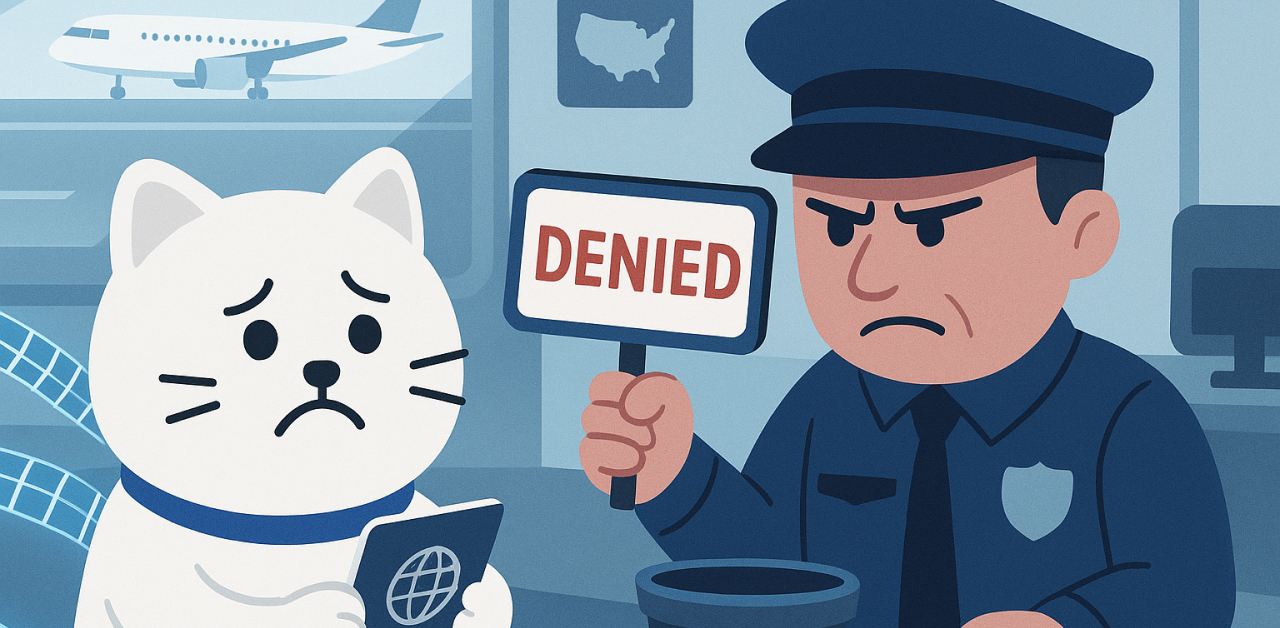
U.S Social Media Screening Mandate for Student Visa Applicants
Categories: Cybersecurity, Data, Data Privacy, Digital Footprint, Government, PII, Social Media, Surveillance
All foreign nationals applying for student and educational visas must now undergo social media and online presence vetting.
According to a leaked cable obtained by POLITICO, consular officers are now directed to scour the internet for signs of what they deem as “hostility towards the citizens, culture, government, institutions or founding principles of the United States”.
As early as April this year there were already rumors of social media vetting for immigrants traveling to the US. This practice is widely regarded as both invasive and ineffective in protecting national security or thwarting security risks.
The following month, it became clear that the “rumors” a month prior were more of a pilot, when a massive volume of visa applications faced a sudden pause – mostly for international students. The purpose was clear; widespread implementation of a social media vetting program for people coming into the U.S.
New Social Media Rules for People Entering the U.S.
According to the POLITICO reporting, U.S. consular staff are now instructed to;
- Review all publicly available online content, including social media and databases like LexisNexis.
- Flag political activism, particularly if it appears critical of U.S. policies or supportive of causes like Palestinian rights or Hamas.
- Take screenshots and case notes for archival review.
- Apply additional scrutiny to any content that might suggest future protest or activism in the U.S.
In parallel reporting from the Associated Press, this directive comes as the U.S. resumes issuing student visas – supposedly “good news”, laced with caveats.
This means that your ability to pursue education in the U.S. is essentially determined by your online behavior, and potentially dependent on your opinions on specific international conflicts.
What Kind of Content Could Prevent Entry to the U.S.
Over time, your opinions and perspectives on various policies, governments or world events is likely to change and evolve. This is why digital “pipelines” exist for political leanings – they tend to develop over time.
Maybe you attended some protests, critiqued some foreign policy, or shared some activist content on your socials. Under the new rules, this content could trigger investigations, delays or denial of your entry to the U.S. The information from POLITICO states that no “single post” will result in automatic disqualification – but the language is loose, and how it will be applied isn’t completely clear.
In the event of an approved, or denied application – screenshots and notes will be preserved – but we don’t know how they’ll be shared, stored, accessed, or what they’ll be used for in future.
Social Media Vetting Will Only Become More Common
In the space of a few months, your social media presence has become a critical factor to determining whether or not you can enter the U.S.
As early as 2020, the Department of Homeland Security and the FBI began expanding efforts to surveil the social media presence of citizens and non-citizens for the purpose of tracking protest movements, religious expression, and political dissent. The current developments for Visa applications
In 2021, Knight Columbia (free speech advocacy group) explained how federal agencies were steadily expanding their capacity to monitor, archive, and analyze online speech. Even then, this often targeted immigrants, travelers, and activists.
Multiple government agencies, including ICE, have a long history of using ethically contentious social media surveillance tools like SocialNet.
Manage Your Digital Presence or Face Consequences
If you’re applying for a U.S. visa – or ever plan to – now is the time to audit your online presence for outdated opinions, overly political takes or anything else you would rather keep private (as is your right).
Redact.dev helps you search, filter, and mass-delete posts across your social media accounts. Whether you need to scrub old tweets, Discord messages, or sensitive opinions posted on Reddit, Redact puts the control back in your hands.
Start with these steps:
- Visit Redact.dev and download the app for free.
- Connect your social accounts securely.
- Use keyword filters and date ranges to pinpoint risky content.
- Review and delete in bulk – safely, privately, and effectively.
You can try Redact.dev for free to start deleting old Facebook, Twitter, Reddit and Discord content that no longer represents your current ideals or desired portrayal on social media.